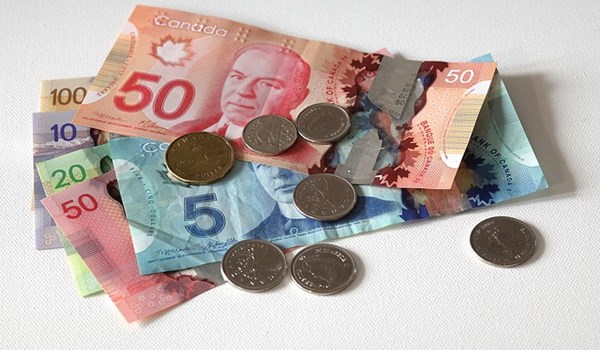Jurisdictions
Regions
Industry Sectors
05/08/21
CANADA: Citizens want a wealth tax and are willing to vote for it, according to new poll.

As published on nationalobserver.com, Thursday 5 August, 2021.
A majority of Canadians believe wealth inequality should be tackled by increasing taxes on the wealthy and large corporations and even said it could influence their vote, according to a new poll.
The Abacus Data poll, released Wednesday morning, was focused on tax fairness in Canada, including the NDP’s proposed one per cent tax on wealth over $20 million from its 2019 election platform. It was commissioned by the Broadbent Institute for the Public Service of Canada, and surveyed 1,500 Canadians aged 18 and older from July 13 to 19.
The poll found 89 per cent of Canadians want to see a wealth tax of one per cent paid by the wealthiest Canadians as part of Canada’s pandemic recovery, with 92 per cent in support of closing tax loopholes and making it harder for corporations to strategically book profits in tax havens.
“Proposals to tax the rich are a near consensus right now, as far as support goes in Canada,” said Katrina Miller, program director for the Broadbent Institute.
Miller said she has never seen support as high as this on polling for other strong progressive proposals. The poll is considered accurate to within plus or minus 2.6 per cent.
“What we're seeing is an unbelievable upswell of interest and urgency amongst Canadians to make our tax system more fair… They want a fairer Canada post-pandemic, we need a way to pay for it, and this is the way that Canadians are choosing,” said Miller.
For a majority of Canadians, this issue crosses party lines and political ideology, she said.
Eighty-nine per cent of Canadians surveyed said they would definitely or probably consider voting for a party that promises to take concrete action to make sure everyone pays their fair share and increase taxes paid by the wealthiest Canadians and large, profitable corporations.
This view was shared by 97 per cent of NDP supporters, 92 per cent of Liberal supporters and 84 per cent of Conservative supporters.
Most Canadians — including just over 50 per cent of Liberal supporters — indicated they don’t think the Trudeau government has done enough to reduce income and wealth inequality and to ensure everyone pays their fair share of taxes.
In an emailed statement, Finance Minister Chrystia Freeland’s press secretary Katherine Cuplinskas said the government has “introduced significant measures to make Canada fairer and more equitable for all” through “a tax cut for the middle-class, higher personal income taxes for the wealthiest Canadians, and the Canada Child Benefit.”
She noted the Liberals’ fall economic statement committed to “implementing a tax on multinational digital giants; introducing a luxury tax; limiting stock option deductions in the largest companies; and implementing a tax on the unproductive use of domestic housing that is owned by non-resident, non-Canadians.”
Although the Liberal government has taken some positive steps, David Coletto, CEO of Abacus Data, said it’s clear Canadians feel it’s not enough.
“This poll really points to an environment where if this debate does take off during a campaign, the Liberals are not immune to criticism that they haven't actually delivered on some of the rhetoric that they often talk about,” said Coletto.
The poll also found no leader or party has a clear advantage when it comes to tax fairness, income and wealth inequality or affordability with preference for Justin Trudeau and the Liberals and Jagmeet Singh and the NDP both landing between 21 per cent and 24 per cent on all three issues and Erin O’Toole and the Conservatives clocking in at 15 to 17 per cent.
One-third of Canadians surveyed were unsure which party would take the best action.
“A whole bunch of Canadians are now sitting (and) waiting to see who's (going to) make the biggest commitment and the commitment that they most believe in,” said Miller. “When it comes to this election, the issue of fair taxation, of taxing the rich, is fair game, and all parties should be looking to double down.”
In July, the Office of the Parliamentary Budget Officer (PBO) released a report that estimated a one-time wealth tax of three per cent and five per cent on Canadians with net wealth exceeding $10 million and $20 million respectively could raise between $44 billion and $61 billion.
But Miller said Canada needs a wealth tax like the NDP proposed, one that is ongoing and provides permanent funding and revenue for investments in universal programs like pharmacare.
The PBO estimated the NDP’s wealth tax would generate $5.6 billion in 2020 to 2021, but using more recent data on asset values and lower, more up-to-date research on tax avoidance and evasion, the CCPA estimated $10 billion to be generated in the first year.
Marc Lee, senior economist for the B.C. office of the Canadian Centre for Policy Alternatives (CCPA), agrees there is a serious need for an annual wealth tax. He said because the state of inequality is so high right now, the idea of a one-time tax to help build out of a pandemic and address infrastructure, climate, and housing needs does hold promise.
One year after the start of the COVID-19 pandemic, Canadian billionaires increased their wealth by $78 billion, according to the CCPA, using data from Forbes’ “real-time billionaires” listing.
Unsurprisingly, over half of Canadians surveyed think the pandemic has worsened inequality. Lee thinks this helps explain the wide consensus across party lines seen in the poll.
“Once inequality gets beyond a certain level, it just stretches all understandings of fairness,” said Lee. He said right- and left-leaning individuals alike can understand the need to address the extreme inequality Canadians find themselves mired in, it just remains to be seen whether politicians will respond with concrete action.


